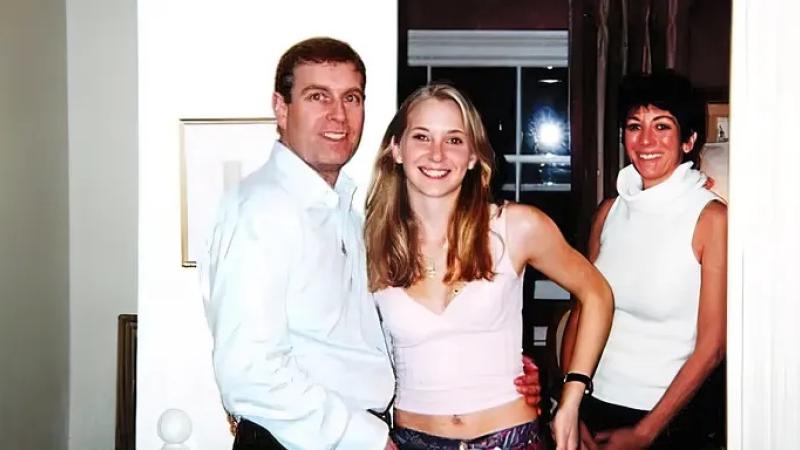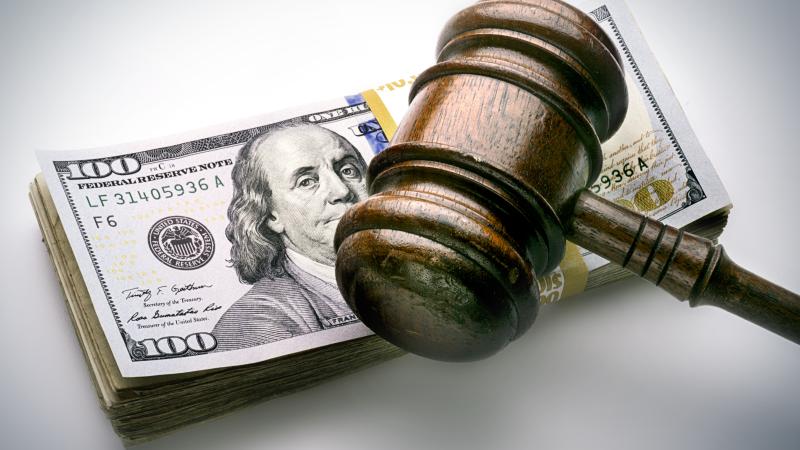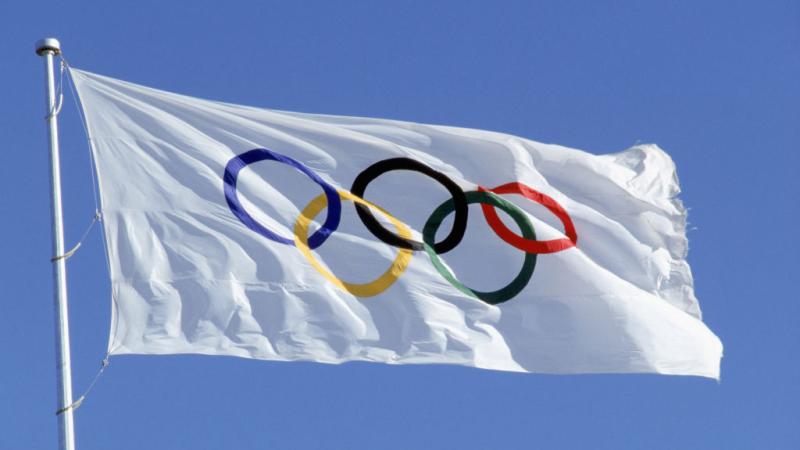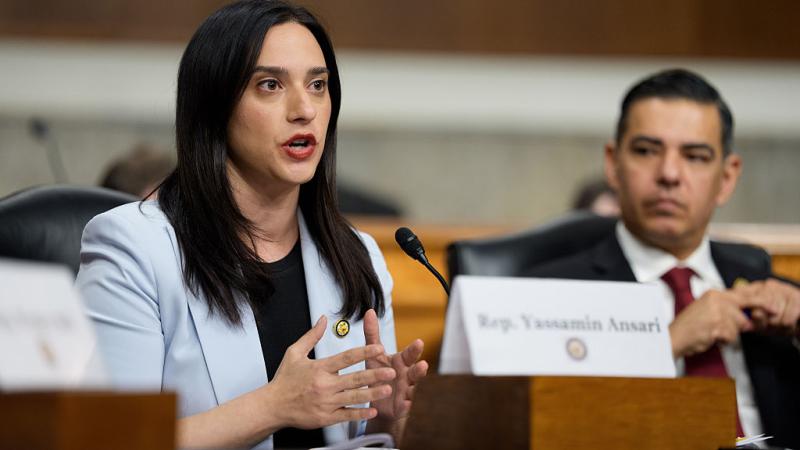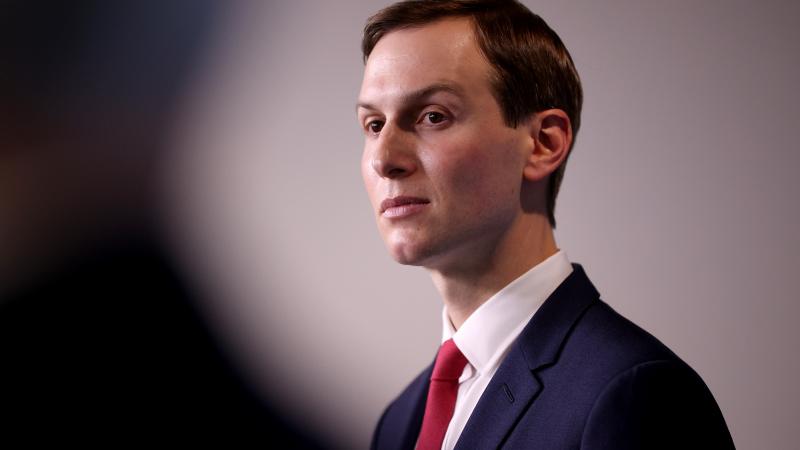The Epstein Files: What we know, and don't know
Much information has been made public, but the Justice Department is cautious about releasing further material that could damage reputations, and faces an uphill legal battle to reveal currently sealed court filings.
As the Jeffrey Epstein case becomes a thorn in the side of the Trump administration, here is what we already know about the now-deceased financial manager and convicted child sex offender, what we don’t know, and why the Justice Department says it is reluctant to release more.
Epstein was a mysterious man of power and influence. He rubbed elbows with the world’s elite and died under widely questioned circumstances in his jail cell while awaiting trial in Manhattan on sex trafficking charges.
In the indictment against him, the Justice Department alleged the financier “sexually exploited and abused dozens of underage girls by enticing them to engage in sex acts with him in exchange for money.” Officials ruled that Epstein had committed suicide.
The strange circumstances of his untimely death and his association with rich and powerful figures has captivated audiences and inspired theories about blackmail operations, foreign intelligence work, and coverups of murder—all of which remain unverified.
Many officials now working for the Trump administration promised that they would deliver transparency in the Epstein case and vowed to release as many documents and case details to the public as possible. Trump often alleged the then-current government was concealing details to protect elites, as FBI Director Kash Patel also claimed in 2023.
Patel, along with Attorney General Pam Bondi, released a “First Phase” of Epstein documents in February pursuant to their effort to bring transparency to the case. Those files included six batches of the flight logs from Epstein’s private plane, nicknamed by observers as "The Lolita Express," and his contact book, both of which were previously known to the public.
The Justice Department also released an evidence list from a search of Epstein’s properties and a heavily redacted list of masseuses that were not previously public.
DOJ taps the brakes on more disclosure
The Justice Department announced earlier this month that no further public disclosures of any Epstein materials would be forthcoming, citing privacy concerns for victims and uncharged individuals and a lack of any client list or evidence Epstein had blackmailed the rich and powerful.
This decision left Americans unsatisfied with the administration, and increasingly, as well as President Trump, who is facing public pressure on the issue. A recent Reuters/Ipsos poll found 69% of Americans believe the federal government is concealing details about Epstein’s clients. Only 17% of Americans approve of President Trump’s handling of the case and nearly a third of Republicans disapprove, the same poll found.
What we know
There is already a large trove of information about Epstein, spanning from his first criminal case in 2005 to his sex trafficking charges in 2019 that paint a picture of the financier’s luxurious life and sexual crimes.
-
Flight logs and the executive jet
Most famous among the evidence are the flight logs from Epstein’s private jet, dubbed "The Lolita Express," that documented trips by a mix of celebrities, businessmen, and politicians over the years, some to Epstein’s private Caribbean island, Little St. James, including President Bill Clinton, and to and from his home in Palm Beach. President Trump's name does not appear on flight logs to the island getaway.
The swanky jet, exclusive island paradise, and Palm Beach home have been a key part of Epstein’s popular image but also of the allegations against him by alleged victims of his sexual trafficking and abuse.
-
Sex Trafficking and Ghislane Maxwell
Court documents released last year by a Florida court stemming from a civil suit against Epstein associate Ghislaine Maxwell detail the first police investigation into Epstein and accusations from alleged victims of Epstein’s purported sex trafficking scheme.
Maxwell was charged and sentenced to 20 years in prison on five counts related to the sex trafficking scheme. Prosecutors said Maxwell groomed women as young as 14 to be abused sexually by Epstein from 1994 to 2004.
Detectives investigating the financier in 2005 determined that approximately thirty women were invited to Epstein's home in Palm Beach to perform “massage and work.” A majority, the detective testified, were under the age of 18.
-
Accusers of abuse come forward in civil cases
Several accusers came forward publicly in the years following and alleged they were victims of Epstein’s sex trafficking scheme, including Virginia Giuffre, who filed the defamation lawsuit against Maxwell in 2015. That lawsuit produced hundreds of pages of records related to the case, including a transcribed deposition of Epstein himself.
Giuffre and other accusers alleged that Epstein and Maxwell had groomed them and encouraged them to have sexual encounters with powerful men in Epstein’s circle. However, some of their claims were dismissed by some as "unreliable hearsay".
- Naming names
Giuffre specifically named Prince Andrew of the British royal family, and accused the prince of sexual assault at one of Epstein’s properties in a lawsuit. The prince denied the claims but settled with Guiffre in 2022.
The names of former President Bill Clinton and President Donald Trump in Epstein’s flight logs have also garnered public attention, though both have stringently denied that they were aware of Epstein’s criminal behavior when they interacted with him. Trump's name does not appear on the flight manifests to Epstein's island. Bill Clinton's name does. Clinton denied ever visiting the island in his 2024 memoir "Citizen," and said "I wish I had never met him."
-
Trump and Clinton both distance themselves from Epstein
Clinton’s spokesperson said in a 2019 statement the former president denied having any knowledge of the “terrible crimes” with which Epstein would later be charged and that flights aboard the plane before then were for Clinton Foundation business. The spokesperson added, “He's not spoken to Epstein in well over a decade.”
President Trump similarly denied having any knowledge of Epstein's crimes and said he cut ties with Epstein in 2004 over a falling out after which he banned Epstein from the club at his palatial Florida estate, Mar-a-Lago.
“Well, I knew him like everybody in Palm Beach knew him,” Trump told reporters at a 2019 press conference in his first term. “I mean, people in Palm Beach knew him. He was a fixture in Palm Beach. I had a falling out with him a long time ago. I don’t think I’ve spoken to him for 15 years. I wasn’t a fan.” The president’s account is supported by reporting of the incident.
-
The evidence gathered at Epstein's townhouse: cash and diamonds
The Justice Department’s release of Epstein documents earlier this year also provided the first look into the materials that federal investigators seized from Epstein’s New York City townhouse in 2019 as well as his island home in the Caribbean.
Agents documented two envelopes filled with over $20,000 cash that appeared to have no discernable purpose. During the search of the Manhattan townhouse, agents reportedly found diamonds alongside the cash, though the precious stones do not appear to be a part of the government’s evidence list and it is unclear what happened to them.
In addition to the cash, the FBI collected dozens of electronic devices, including cell phones, computers, tablets, and hard drives, showing the government retains mountains of evidence that much of which remains secret years after Epstein’s untimely death.
-
Epstein, Bill Gates and blackmail
In May 2023, The Wall Street Journal reported that Epstein attempted to threaten Bill Gates with knowledge of an affair the Microsoft founder allegedly had with a Russian bridge player in order to secure an investment in one of his charities.
The incident was confirmed by Gates' spokeswoman. “Mr. Gates met with Epstein solely for philanthropic purposes. Having failed repeatedly to draw Mr. Gates beyond these matters, Epstein tried unsuccessfully to leverage a past relationship to threaten Mr. Gates,” she told the Journal.
What we don’t know
But, despite knowing quite a bit about Epstein’s sexual crimes and personal, depraved behavior, questions continue to swirl about Epstein, especially in light of evidence that the financier had a history of blackmailing at least one high-powered billionaire, namely Bill Gates.
-
Other blackmail victims
Given this history, the Epstein case has particularly drawn the attention of congressional investigators, who have demanded the Justice Department turn over a list of the clients with whom Jeffrey Epstein worked.
“I want to know about the Epstein list. I don't just want to know who's on the Epstein list. I want to know is the government working with Epstein to blackmail certain people? Because that's that's one of the theories that float around out there,” House Oversight Committee Chairman James Comer told Just the News earlier this year.
“I don't know if it's true… but I want to know, and I think the American people want to know, and they deserve to know, and that's one of the things Donald Trump said he would do, is he would release a lot of our American secrets.”
Epstein was actually asked directly whether he was collecting blackmail material on his powerful friends in a 2016 deposition related to Virigina Giuffre's lawsuit against Maxwell. The transcribed deposition was released as part of the unsealed court records last year.
Epstein refused to answer the questions posed to him by Giuffre’s lawyers and repeatedly invoked his Fifth Amendment right against self-incrimination to nearly every inquiry.
“You had previously instructed Virginia that she had to give you a full report on the details of what men like Prince Andrew did to her so that you would have blackmail material you could use, true?” Giuffre’s lawyer asked.
“Fifth,” Epstein replied.
You can read the deposition below:
Rumors and speculation about other potential blackmail targets have created problems on several levels, the least of which is how the release of such information would almost invariably result in the blackmail material being fodder for yet more personal and political chatter or disinformation, whether true or not.
Why the Justice Department is reluctant to release more
The Justice Department is often reluctant to release details about investigations or grand jury proceedings, especially if that information does not lead to charges against an individual or a group of individuals, due to privacy concerns and court-imposed seals.
Privacy concerns, both for alleged victims of Epstein and Maxwell, as well as for individuals who may be named in the investigative files but who are not alleged to have committed any crimes, are the motivating force behind the Justice Department’s decision to keep much of the material secret.
-
Minors who were targeted for sexual abuse
“The files relating to Epstein include a large volume of images of Epstein, images and videos of victims who are either minors or appear to be minors, and over ten thousand downloaded videos and images of illegal child sex abuse material and other pornography,” the Justice Department and the FBI said in a statement.
“Teams of agents, analysts, attorneys, and privacy and civil liberties experts combed through the digital and documentary evidence with the aim of providing as much information as possible to the public while simultaneously protecting victims,” the statement continued.
-
Reputational interests
Further, the DOJ has expressed that any individual named in the investigative files but who remains uncharged is entitled to a presumption of innocence that has remained a longstanding part of the American legal system. As a legal matter, purely reputational interests can come into play when a person is charged. The case of Sam Sheppard, upon which the movie and television show "The Fugitive" was based, led to a U.S. Supreme Court ruling that overturned Sheppard's murder conviction because the "massive, pervasive, and prejudicial publicity attending [Sheppard's] prosecution prevented him from receiving a fair trial consistent with the Due Process Clause of the Fourteenth Amendment."
President Trump has expressed a similar concern when pressed by reporters about releasing Epstein information. In a June 2024 pre-election Fox News interview, Trump said he would be less likely to release the full files “because you don't want to affect people's lives if it's phony stuff in there, because it's a lot of phony stuff with that whole world.”
-
Some sought-after material is under judicial seal
Yet other information in the Epstein matter is still under seal by federal courts. The White House and Justice Department have sought to have the courts unseal grand jury testimony transcripts in the Epstein cases, which would allow them to be released publicly. However, one federal judge has already denied efforts to unseal the transcripts from Epstein’s Florida case. That judge, Robin L. Rosenberg, was selected for the federal bench by Barack Obama, and denied the request citing Court of Appeals precedent. "The judiciary's hands are tied," she reportedly said.
Alan Dershowitz, a famed legal scholar, former lawyer to Epstein himself, and himself a litigant in Epstein-related civil cases, said that any new information is not likely to be found in those transcripts, but rather in batches of investigative and court files still under seal in New York federal courts.
“[The] information that hasn’t been requested is going to be far more informative and far more relevant than the grand jury information,” Dershowitz told Fox News’ Shannon Bream last week. “Grand jury information is narrowly tailored by prosecutors only to provide sufficient evidence to result in an indictment.”
It is not clear whether the Justice Department will file a motion or otherwise request that those files be unsealed or whether the court that placed the seal—or a higher court—will agree to unseal those files.
The Facts Inside Our Reporter's Notebook
Documents
Links
- the Justice Department alleged
- Kash Patel claimed
- Those files included
- Reuters/Ipsos poll found
- charged and sentenced
- thirty women were invited to Epstein's home
- accusers came forward publicly
- hearsay claims
- denied the claims but settled
- denied having any knowledge
- supported by reporting
- first look into the materials
- reportedly found diamonds
- the FBI collected
- no stranger to blackmail
- with a Russian bridge player
- told Just the News earlier this year
- said in a statement
- presumption of innocence
- U.S. Supreme Court ruling
- June 2024 pre-election Fox News interview
- Dershowitz told Fox Newsâ Shannon Bream
